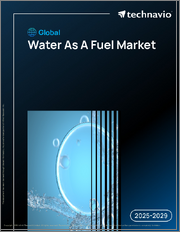
|
시장보고서
상품코드
1803530
지속가능성 컨설팅 시장 : 제공 서비스별, 지속가능성 중점 분야별, 조직 규모별, 최종 사용 산업별, 제공 모델별 - 세계 예측(2025-2030년)Sustainability Consulting Market by Offerings, Sustainability Focus Area, Organization Size, End Use Industry, Delivery Model - Global Forecast 2025-2030 |
||||||
지속가능성 컨설팅 시장은 2024년에 162억 8,000만 달러로 평가되었습니다. 2025년에는 204억 9,000만 달러에 이르고, CAGR 26.71%로 성장하여 2030년에는 674억 달러에 이를 것으로 예측됩니다.
| 주요 시장 통계 | |
|---|---|
| 기준 연도 : 2024년 | 162억 8,000만 달러 |
| 추정 연도 : 2025년 | 204억 9,000만 달러 |
| 예측 연도 : 2030년 | 674억 달러 |
| CAGR(%) | 26.71% |
기업의 회복력, 이해관계자의 신뢰, 장기적 가치 창출을 촉진하는 전략적 지속가능성 컨설팅의 필요성을 밝힙니다.
지난 10년간 지속가능성 컨설팅은 복잡한 환경, 사회, 거버넌스 문제를 해결하는 조직에 필수적인 분야로 부상하고 있습니다. 틈새 자문 업무로 시작한 지속가능성 컨설팅은 기업 전략의 핵심에 영향을 미치고, 이해관계자의 인식을 형성하며, 장기적인 가치 창출을 지원하는 탄탄한 서비스 라인으로 발전했습니다. 기후 변화 리스크가 심화되고 규제 프레임워크가 강화되는 가운데, 지속가능성을 업무 프로세스와 경영진의 의사결정에 반영할 필요성이 그 어느 때보다 높아지고 있습니다.
규제 요구, 기술 혁신, 이해관계자 기대의 진화가 지속가능성 컨설팅의 방식을 변화시킵니다.
지속가능성 컨설팅 현장은 규제 환경의 진화, 기술 혁신, 이해관계자의 기대 변화라는 세 가지 요인에 의해 큰 변화를 겪고 있습니다. 주요 관할권의 새로운 보고 의무로 인해 기업들은 상세한 환경 및 사회 성과 데이터를 공개해야 하며, 컨설턴트들은 고도의 컴플라이언스 프레임워크와 실시간 분석 기능을 개발해야 합니다. 동시에 탄소 관리 플랫폼, 시나리오 모델링, 블록체인을 활용한 공급망 검증 등 디지털 기술 혁신이 자문 업무의 한계를 재정의하고 있습니다.
2025년 예정된 미국의 새로운 관세 부과가 세계 공급망 및 지속가능성 자문 서비스에 미치는 영향 평가
2025년에 발효되는 미국의 새로운 관세 발표는 세계 공급망과 지속가능성 자문 서비스에 새로운 복잡성을 가져왔습니다. 주요 무역 상대국으로부터 원자재와 부품을 조달하는 기업들은 비용 상승 전망에 직면하여 조달 전략과 공급망 재평가를 촉구하고 있습니다. 지속가능성 컨설턴트는 관세 중심의 비용 전환과 탄소 발자국을 평가하고, 경제 역학 변화 속에서 탈탄소화 경로가 실행 가능한지 확인하는 임무를 맡고 있습니다.
서비스 제공, 지속가능성 초점, 조직 규모, 산업별, 제공 모델에 걸친 세분화를 통해 실용적인 인사이트를 도출합니다.
시장 세분화에 대한 미묘한 이해는 서비스 제공을 최적화하고 높은 성장 기회를 파악하고자 하는 이해관계자들에게 매우 중요합니다. 지속가능성 컨설팅은 서비스 및 솔루션 두 분야에 걸쳐 있습니다. 서비스 인게이지먼트는 컴플라이언스 및 리포팅, 운영 컨설팅, 전략 컨설팅으로 분류됩니다. 이 중 컴플라이언스 및 보고는 규제 준수 및 지속가능성 보고로, 운영 컨설팅은 프로세스 최적화 및 공급망 지속가능성으로 분류됩니다. 전략 컨설팅은 ESG 전략 수립 및 종합적인 지속가능성 로드맵 수립을 포함합니다. 한편, 솔루션 중심의 이니셔티브는 탄소 관리 솔루션, 에너지 관리 솔루션, 공급망 지속가능성 플랫폼, 지속가능성 보고 및 분석 플랫폼, 지속 가능한 제품 설계 도구, 폐기물 및 물 관리 솔루션에 이르기까지 다양한 플랫폼과 툴을 다루고 있습니다. 다양한 플랫폼과 툴을 다루고 있습니다.
지속가능성 컨설팅의 성장 궤도를 견인하는 미주, 중동 및 아프리카, 아시아태평양 역학 관계 파악
지역 역학은 지속가능성 컨설팅 서비스의 발전과 보급에 큰 영향을 미치며, 지역마다 다른 규제 프레임워크, 성숙도 곡선, 시장 성장 촉진요인이 존재합니다. 북미와 남미에서는 자발적 탄소 시장, 재생에너지 프로젝트에 대한 연방 및 주정부 차원의 인센티브, 순환 경제 이니셔티브에 대한 의욕이 수요를 형성하고 있습니다. 이 지역에서 사업을 운영하는 컨설팅 회사는 캘리포니아주의 까다로운 보고 요건부터 캐나다의 청정 기술 개발을 위한 인센티브에 이르기까지 이해관계자의 포용성과 사회적 형평성에 대한 요구를 충족시키면서 정책의 패치워크를 탐색해야 합니다.
산업의 미래를 좌우하는 주요 지속가능성 컨설팅 기업의 전략적 움직임과 경쟁 차별화 전략 분석
지속가능성 컨설팅 업계에서는 대형 세계 기업과 부티크 기업들이 지역과 업종을 넘어 시장 점유율을 놓고 경쟁하는 등 경쟁이 치열해지고 있습니다. 선도적인 전문 서비스 네트워크는 광범위한 고객 포트폴리오를 활용하여 지속가능성 서비스를 광범위한 자문 업무에 통합하고 재무, 운영 및 ESG 전문성을 결합한 엔드 투 엔드 솔루션을 구축하고 있습니다. 솔루션을 구축하고 있습니다. 이러한 기업들은 전략적 합병, 인수, 파트너십을 중시하고, 탄소 회계 소프트웨어, 순환형 디자인, 사회적 영향 측정 등의 분야에서 전문 업무를 강화하고 있습니다.
업계 리더들이 지속 가능한 비즈니스로의 변화를 가속화할 수 있도록 실용적이고 긍정적인 전략적 제안을 제시합니다.
지속가능성 우선 순위의 가속화되는 요구를 극복하기 위해 업계 리더들은 현실적이고 미래지향적인 일련의 행동을 취해야 합니다. 첫째, 지속가능성에 대한 고려를 기업 전략의 핵심에 포함시킴으로써 환경 및 사회적 목표가 부가적인 노력이 아닌 기본적 가치의 원동력이 될 수 있도록 합니다. 이를 위해서는 인센티브 구조, 성과 평가 기준, 거버넌스 프로세스, 경영진 및 사업부 내 책임성을 강화하기 위해 인센티브 구조, 성과 평가 기준, 거버넌스 프로세스가 일치해야 합니다.
지속가능성 컨설팅 시장의 결론을 도출하기 위해 채택한 엄격한 다원적 연구 접근 방식과 분석 프레임워크에 대한 자세한 내용입니다.
우리의 조사 방법은 지속가능성 컨설팅의 상황을 종합적으로 이해하기 위해 정성적 접근과 정량적 접근을 모두 통합하고 있습니다. 먼저, 서비스 내용, 기술 도구, 시장 성장 촉진요인의 변천을 파악하기 위해 규제 당국 신고, 업계 잡지, 학술 연구, 공개 정보 등을 활용한 철저한 2차 조사를 실시했습니다. 이 탁상 분석을 통해 초기 가설과 세분화 프레임워크를 구축할 수 있는 토대가 마련되었습니다.
지속가능성 컨설팅의 중요성과 세계 이슈의 변화 속에서 조직의 지속 가능한 성장을 위한 전략적 우선순위에 대한 결론
조직이 점점 더 심각한 환경적, 사회적 문제에 직면하면서 지속가능성 컨설팅은 주변적인 서비스에서 핵심적인 전략 기능으로 전환되고 있습니다. 규제 의무화, 이해관계자 기대치의 변화, 기술 혁신의 상호작용으로 자문 모델이 재구성되고 성과 지향적 참여의 가치 명제가 높아지고 있습니다. 이제 고객들은 컴플라이언스의 길을 제시할 뿐만 아니라 비용 절감, 브랜드 향상, 경영 회복의 기회를 열어주는 종합적인 로드맵을 기대합니다.
목차
제1장 서문
제2장 조사 방법
제3장 주요 요약
제4장 시장 개요
제5장 시장 역학
제6장 시장 인사이트
- Porter's Five Forces 분석
- PESTEL 분석
제7장 미국 관세의 누적 영향 2025
제8장 지속가능성 컨설팅 시장 : 제공별
- 서비스
- 컴플라이언스 및 보고
- 규제 컴플라이언스
- 지속가능성 보고
- 운영 컨설팅
- 프로세스 최적화
- 공급망 지속가능성
- 전략 컨설팅
- ESG 전략
- 지속가능성 로드맵
- 컴플라이언스 및 보고
- 솔루션
- 탄소 관리 솔루션
- 에너지 관리 솔루션
- 공급망 지속가능성 플랫폼
- 지속가능성 리포트 및 분석 플랫폼
- 지속가능한 제품 설계 툴
- 폐기물 및 물 관리 솔루션
제9장 지속가능성 컨설팅 시장 : 지속가능성 중점 분야별
- 탄소 관리
- 탄소발자국
- 배출량 거래
- 순환형 경제
- 재생에너지 통합
- 바이오매스
- 태양
- 풍력
- 폐기물 관리
- 물 관리
제10장 지속가능성 컨설팅 시장 : 조직 규모별
- 대기업
- 중소기업
제11장 지속가능성 컨설팅 시장 : 최종 이용 산업별
- 소비재 및 소매
- 의류
- 식품 및 음료
- 에너지 및 유틸리티
- 석유 및 가스
- 발전
- 수도 사업
- 정부 및 NGO
- 헬스케어 및 의약품
- 병원
- 의약품 제조
- IT 및 통신
- 데이터센터
- 네트워크 프로바이더
- 제조업
- 자동차
- 화학제품
- 일렉트로닉스
- 운송 및 물류
- 항공
- 레일
- 도로 화물 운송
- 배송
제12장 지속가능성 컨설팅 시장 : 유통 모델별
- On-Premise 컨설팅
- 원격 컨설팅
제13장 아메리카의 지속가능성 컨설팅 시장
- 미국
- 캐나다
- 멕시코
- 브라질
- 아르헨티나
제14장 유럽, 중동 및 아프리카의 지속가능성 컨설팅 시장
- 영국
- 독일
- 프랑스
- 러시아
- 이탈리아
- 스페인
- 아랍에미리트(UAE)
- 사우디아라비아
- 남아프리카공화국
- 덴마크
- 네덜란드
- 카타르
- 핀란드
- 스웨덴
- 나이지리아
- 이집트
- 튀르키예
- 이스라엘
- 노르웨이
- 폴란드
- 스위스
제15장 아시아태평양의 지속가능성 컨설팅 시장
- 중국
- 인도
- 일본
- 호주
- 한국
- 인도네시아
- 태국
- 필리핀
- 말레이시아
- 싱가포르
- 베트남
- 대만
제16장 경쟁 구도
- 시장 점유율 분석, 2024
- FPNV 포지셔닝 매트릭스, 2024
- 경쟁 분석
- Accenture plc
- Deloitte Touche Tohmatsu Limited
- AECOM Technology Corporation
- AFRY AB
- Antea Group by Oranjewoud N.V.
- Anthesis Group
- Arcadis NV
- Bain & Company, Inc.
- Boston Consulting Group, Inc.
- Egis Group
- Ernst & Young Global Limited
- IBM Corporation
- ICF International Inc.
- McKinsey & Company, Inc.
- NV5Global, Inc.
- PricewaterhouseCoopers International Limited
- Ramboll Group A/S
- RSK Group Ltd
- Schneider Electric SE
- SLR Consulting Ltd
- Sphera Solutions, LLC
- Stantec Inc.
- The ERM International Group Limited
- Willdan Group, Inc.
- Worley group
제17장 리서치 AI
제18장 리서치 통계
제19장 리서치 컨택트
제20장 리서치 기사
제21장 부록
LSH 25.09.11The Sustainability Consulting Market was valued at USD 16.28 billion in 2024 and is projected to grow to USD 20.49 billion in 2025, with a CAGR of 26.71%, reaching USD 67.40 billion by 2030.
| KEY MARKET STATISTICS | |
|---|---|
| Base Year [2024] | USD 16.28 billion |
| Estimated Year [2025] | USD 20.49 billion |
| Forecast Year [2030] | USD 67.40 billion |
| CAGR (%) | 26.71% |
Unveiling the Imperative for Strategic Sustainability Consulting to Drive Corporate Resilience, Stakeholder Trust, and Long-Term Value Creation
Over the past decade, sustainability consulting has emerged as an indispensable discipline for organizations grappling with complex environmental, social, and governance imperatives. What began as a niche advisory practice has evolved into a robust service line that influences core corporate strategy, shapes stakeholder perceptions, and underpins long-term value creation. As climate risks intensify and regulatory frameworks tighten, the imperative to embed sustainability into both operational processes and executive decision-making has never been more pronounced.
Regulatory bodies across major markets are introducing more stringent reporting requirements, while investors and customers demand greater transparency and accountability. This confluence of pressures has elevated the role of consultants from external auditors to strategic partners capable of guiding companies through transformational journeys. By leveraging specialized expertise in areas such as emissions accounting, supply chain decarbonization, and social impact measurement, consultants enable organizations to not only comply with mandates but to harness sustainability as a driver of innovation.
The purpose of this executive summary is to distill the most critical insights from our extensive research into the global sustainability consulting landscape. Through an exploration of transformative shifts, the repercussions of United States tariffs slated for 2025, in-depth segmentation analyses, and regional dynamics, we aim to equip decision-makers with the clarity needed to navigate an increasingly complex environment.
As you delve into the sections ahead, you will discover strategic frameworks, competitive intelligence, and actionable recommendations that together chart a path toward enterprise resilience, reputation enhancement, and enduring stakeholder trust.
Navigating the Convergence of Regulatory Demands, Technological Innovation, and Evolving Stakeholder Expectations to Transform Sustainability Consultancy Methods
The sustainability consulting landscape is undergoing a profound metamorphosis driven by the convergence of regulatory evolution, technological breakthroughs, and shifting stakeholder expectations. New reporting mandates in key jurisdictions now require companies to disclose detailed environmental and social performance data, compelling consultants to develop sophisticated compliance frameworks and real-time analytics capabilities. At the same time, digital innovations in carbon management platforms, scenario modeling, and blockchain-enabled supply chain verification are redefining the boundaries of what is possible in advisory engagements.
In parallel, investors and consumer advocacy groups are pressing for tangible proof of progress toward net-zero targets, favoring firms that demonstrate measurable outcomes rather than aspirational pledges. This trend has elevated the importance of outcome-oriented consulting services, where providers must deliver verifiable impacts and integrate sustainability metrics directly into financial forecasting models. As a result, consultancy teams are increasingly embedding data scientists, engineers, and behavioral specialists alongside traditional strategists to offer end-to-end transformation roadmaps.
Looking ahead, the interplay between emerging regulations, investor scrutiny, and technology adoption will continue to reshape service offerings and business models. Firms that proactively invest in digital toolkits, forge cross-sector partnerships, and refine outcome measurement frameworks will secure a leadership position in this evolving ecosystem.
Assessing the Implications of Newly Instituted United States Tariffs Scheduled for 2025 on Global Supply Chains and Sustainability Advisory Services
The announcement of a new tranche of United States tariffs set to take effect in 2025 has introduced a fresh layer of complexity for global supply chains and sustainability advisory services. Companies that source raw materials or components from key trading partners now face the prospect of elevated costs, prompting a reassessment of procurement strategies and supplier networks. Sustainability consultants are tasked with evaluating tariff-driven cost shifts alongside carbon footprints, ensuring that decarbonization pathways remain viable amid changing economic dynamics.
Moreover, the imposition of higher duties on certain steel, aluminum, and agricultural imports has sparked a renewed focus on domestic sourcing initiatives and circular economy approaches. Organizations are exploring how to repurpose by-products, extend product lifecycles, and localize manufacturing to mitigate tariff impacts and reduce transportation emissions. These strategic pivots require consultants to model trade-off scenarios that balance cost optimization, regulatory compliance, and sustainability outcomes.
At the same time, emerging tariffs may alter competitive positioning across industries, as firms in different regions experience disparate cost pressures. Sustainability advisory practices must therefore calibrate their frameworks to account for regional trade policies and evolving geopolitical landscapes. By integrating tariff forecasts into scenario planning tools and supply chain mapping exercises, consultants can help clients anticipate disruption, safeguard resilience, and maintain progress toward their environmental and economic objectives.
Deriving Actionable Insights from Segmentation Spanning Offerings, Sustainability Focus, Organization Size, Industry Verticals, and Delivery Models
A nuanced understanding of market segmentation is crucial for stakeholders seeking to optimize service delivery and identify high-growth opportunities. Within the offerings dimension, sustainability consulting spans both services and solutions. Service engagements are categorized into compliance and reporting, operational consulting, and strategy consulting. The first of these further disaggregates into regulatory compliance and sustainability reporting, while operational consulting encompasses process optimization and supply chain sustainability. Strategy consulting then extends into ESG strategy formulation and comprehensive sustainability roadmapping. Meanwhile, solution-oriented initiatives cover a range of platforms and tools, from carbon management solutions and energy management solutions to supply chain sustainability platforms, sustainability reporting and analytics platforms, sustainable product design tools, and waste and water management solutions.
In terms of focus areas, carbon management is subdivided into carbon footprinting and emission trading, complementing broader circular economy strategies alongside renewable energy integration efforts that include biomass, solar, and wind technologies. Waste management and water management complete the sustainability focus spectrum. Organizations of all sizes, from large enterprises to small and medium-sized enterprises, seek tailored consulting interventions. Similarly, end use industries span consumer goods and retail-focusing on apparel and food and beverage-energy and utilities with emphasis on oil and gas, power generation, and water utilities, as well as government and NGOs, healthcare and pharmaceuticals addressing hospitals and pharmaceutical manufacturing, IT and telecommunications covering data centers and network providers, manufacturing across automotive, chemicals, and electronics, and transportation and logistics encompassing aviation, rail, road freight, and shipping. Lastly, the delivery model dichotomy between on premise consulting and remote consulting reflects the growing importance of digital engagement and flexible deployment to meet diverse client requirements.
By weaving these segmentation layers into a cohesive narrative, stakeholders can pinpoint the most relevant service-solution combinations, prioritize investments according to organizational context, and tailor go-to-market approaches that resonate with industry-specific challenges and client expectations.
Illuminating Regional Dynamics Across The Americas, Europe Middle East & Africa, And Asia-Pacific In Driving Sustainability Consulting Growth Trajectories
Regional dynamics exert a profound influence on the evolution and uptake of sustainability consulting services, with each geography presenting distinct regulatory frameworks, maturity curves, and market drivers. In the Americas, an emphasis on voluntary carbon markets, federal and state-level incentives for renewable energy projects, and a growing appetite for circular economy initiatives are shaping demand. Consulting firms operating here must navigate a patchwork of policies, from California's advanced reporting requirements to incentives for clean technology deployment in Canada, all while addressing stakeholder calls for inclusivity and social equity.
Europe, Middle East and Africa demonstrate a leadership role in regulatory innovation and enforcement, anchored by the European Green Deal and evolving sustainability reporting directives. Businesses across this region face tight deadlines for compliance with increasingly prescriptive standards, driving robust demand for advanced data analytics and scenario planning services. At the same time, resource constraints in parts of Africa and the Middle East accelerate interest in water management, waste reduction, and modular energy solutions, fostering opportunities for integrated consulting and technology partnerships.
In Asia-Pacific, rapid industrialization and investment in renewable energy infrastructure are critical growth levers. Governments are rolling out ambitious decarbonization roadmaps, from solar farm expansions in India to offshore wind auctions in Taiwan. As environmental regulations gain traction, companies are seeking holistic advisory engagements that blend local expertise with global best practices. Across these regional markets, consultants who combine sectoral knowledge with deep regulatory insights and digital toolkits will be best positioned to guide clients through complex transitions and capture emerging opportunities.
Analyzing Strategic Movements And Competitive Differentiation Among Leading Sustainability Consulting Firms Shaping Industry Futures
Competitive intensity within the sustainability consulting sector has intensified as leading global and boutique firms vie for market share across geographies and industry verticals. Large professional services networks have leveraged their extensive client portfolios to integrate sustainability offerings into broader advisory lines, creating end-to-end solutions that combine financial, operational, and ESG expertise. These firms often emphasize strategic mergers, acquisitions, and partnerships to bolster specialty practices in areas such as carbon accounting software, circular design, and social impact measurement.
Conversely, niche consultancies have capitalized on specialized domains, focusing on in-depth knowledge of local regulatory regimes, proprietary analytics platforms, or innovative service-delivery models. By maintaining agility in pricing and engagement structures, these competitors can outmaneuver larger incumbents in specific market segments, particularly within rapidly evolving focus areas like renewable energy integration and waste management. Strategic alliances between technology providers and advisory boutiques have also emerged, offering clients combined hardware, software, and consulting bundles geared toward plug-and-play sustainability solutions.
Across the competitive landscape, firms are differentiating through deep investment in data analytics, scenario modeling, and machine learning capabilities. The deployment of digital dashboards that translate complex ESG data into actionable insights has become a baseline expectation, further raising the bar for service excellence. Ultimately, success hinges on the ability to deliver verifiable outcomes, demonstrate rapid return on advisory investments, and maintain thought leadership that anticipates future regulatory and market shifts.
Formulating Pragmatic And Forward-Looking Strategic Recommendations To Empower Industry Leaders In Accelerating Sustainable Business Transformations
To navigate the accelerating demands of sustainability priorities, industry leaders must adopt a series of pragmatic, forward-looking actions. First, embedding sustainability considerations into core corporate strategy ensures that environmental and social goals are treated as fundamental value drivers rather than add-on initiatives. This requires aligning incentive structures, performance metrics, and governance processes to foster accountability at the executive level and within business units.
Second, organizations should invest in integrated digital platforms that facilitate real-time data collection, advanced analytics, and predictive modeling. By centralizing ESG data streams and leveraging artificial intelligence, companies can move from retrospective reporting toward proactive risk management and opportunity identification. Third, forging collaborative partnerships across the value chain-spanning suppliers, customers, regulators, and technology providers-amplifies the impact of individual efforts and accelerates systemic change.
Moreover, building in-house capabilities through targeted training and knowledge-sharing programs empowers employees to drive sustainability initiatives from the ground up. Cross-functional teams that combine expertise in finance, operations, R&D, and communications can accelerate project delivery and ensure holistic integration of sustainability objectives. Lastly, establishing adaptive governance mechanisms enables rapid response to policy shifts, emerging stakeholder concerns, and technological breakthroughs, maintaining organizational agility and competitive edge.
Detailing Rigorous Multimethod Research Approaches And Analytical Frameworks Employed To Generate Insightful Sustainability Consulting Market Conclusions
Our research methodology integrates both qualitative and quantitative approaches to deliver a comprehensive understanding of the sustainability consulting landscape. We began with exhaustive secondary research, drawing on regulatory filings, industry journals, academic studies, and public disclosures to map the evolution of service offerings, technology tools, and market drivers. This desk-based analysis laid the groundwork for developing initial hypotheses and segmentation frameworks.
Primary research constituted the next phase, featuring in-depth interviews with C-level executives, senior consultants, policy experts, and technology vendors across major regions. These conversations provided contextual insights into evolving client priorities, competitive dynamics, and the practical challenges of implementing sustainability initiatives. Simultaneously, we conducted structured surveys with a broad array of stakeholders to quantify demand patterns, service adoption rates, and investment preferences.
To ensure data accuracy and minimize bias, we employed a rigorous triangulation process, cross-validating findings from secondary sources, interview transcripts, and survey responses. Insights were further refined through expert review panels and validation workshops, where industry practitioners critiqued draft conclusions and offered real-world perspectives. Finally, proprietary analytical frameworks and scenario modeling tools were applied to synthesize the evidence base, derive actionable recommendations, and project potential pathways for the market's evolution.
Concluding Reflections On Sustainability Consulting Imperatives And Strategic Priorities To Sustain Organizational Growth Amid Evolving Global Challenges
As organizations confront escalating environmental and social imperatives, sustainability consulting has transitioned from a peripheral service to a core strategic function. The interplay of regulatory mandates, evolving stakeholder expectations, and technological innovation is reshaping advisory models and elevating the value proposition of outcome-oriented engagements. Clients now expect holistic roadmaps that not only map compliance pathways but also unlock opportunities for cost savings, brand enhancement, and operational resilience.
Our analysis underscores the critical importance of tailored service offerings informed by granular segmentation of offerings, focus areas, organization sizes, industries, and delivery modalities. Regional nuances further complicate this picture, as market dynamics in the Americas, Europe Middle East and Africa, and Asia-Pacific diverge in regulatory stringency, maturity of voluntary frameworks, and resource constraints. Competitive positioning hinges on the ability to integrate digital toolkits, forge strategic alliances, and deliver verifiable impact at speed.
Looking forward, industry leaders must embrace adaptive governance, invest in data-driven decision frameworks, and cultivate cross-functional expertise to navigate uncertainties in trade policy, climate regulation, and stakeholder sentiment. Those that succeed will transform sustainability from a compliance obligation into a catalyst for innovation, differentiation, and enduring value creation.
Table of Contents
1. Preface
- 1.1. Objectives of the Study
- 1.2. Market Segmentation & Coverage
- 1.3. Years Considered for the Study
- 1.4. Currency & Pricing
- 1.5. Language
- 1.6. Stakeholders
2. Research Methodology
- 2.1. Define: Research Objective
- 2.2. Determine: Research Design
- 2.3. Prepare: Research Instrument
- 2.4. Collect: Data Source
- 2.5. Analyze: Data Interpretation
- 2.6. Formulate: Data Verification
- 2.7. Publish: Research Report
- 2.8. Repeat: Report Update
3. Executive Summary
4. Market Overview
- 4.1. Introduction
- 4.2. Market Sizing & Forecasting
5. Market Dynamics
- 5.1. Integrating circular economy principles to reduce waste and resource consumption in global supply chains
- 5.2. Accelerating adoption of ESG data analytics platforms for real-time sustainability performance tracking
- 5.3. Leveraging AI-driven carbon footprint modeling to optimize decarbonization strategies for enterprises
- 5.4. Embedding sustainability-linked finance instruments to incentivize corporate emission reduction targets
- 5.5. Collaborating cross-sector to develop regenerative agriculture initiatives for climate-resilient food systems
- 5.6. Advancing green hydrogen infrastructure development through public-private partnerships and policy incentives
- 5.7. Scaling nature-based solutions for coastal protection and biodiversity restoration in urban planning
- 5.8. Mainstreaming social equity metrics in corporate sustainability reporting to address stakeholder demands
- 5.9. Deploying low-carbon building materials and modular design to achieve net-zero construction targets in cities
- 5.10. Enhancing supply chain traceability via blockchain to verify ethical sourcing and reduce environmental risk
6. Market Insights
- 6.1. Porter's Five Forces Analysis
- 6.2. PESTLE Analysis
7. Cumulative Impact of United States Tariffs 2025
8. Sustainability Consulting Market, by Offerings
- 8.1. Introduction
- 8.2. Services
- 8.2.1. Compliance & Reporting
- 8.2.1.1. Regulatory Compliance
- 8.2.1.2. Sustainability Reporting
- 8.2.2. Operational Consulting
- 8.2.2.1. Process Optimization
- 8.2.2.2. Supply Chain Sustainability
- 8.2.3. Strategy Consulting
- 8.2.3.1. ESG Strategy
- 8.2.3.2. Sustainability Roadmapping
- 8.2.1. Compliance & Reporting
- 8.3. Solutions
- 8.3.1. Carbon Management Solutions
- 8.3.2. Energy Management Solutions
- 8.3.3. Supply Chain Sustainability Platforms
- 8.3.4. Sustainability Reporting & Analytics Platforms
- 8.3.5. Sustainable Product Design Tools
- 8.3.6. Waste & Water Management Solutions
9. Sustainability Consulting Market, by Sustainability Focus Area
- 9.1. Introduction
- 9.2. Carbon Management
- 9.2.1. Carbon Footprinting
- 9.2.2. Emission Trading
- 9.3. Circular Economy
- 9.4. Renewable Energy Integration
- 9.4.1. Biomass
- 9.4.2. Solar
- 9.4.3. Wind
- 9.5. Waste Management
- 9.6. Water Management
10. Sustainability Consulting Market, by Organization Size
- 10.1. Introduction
- 10.2. Large Enterprise
- 10.3. Small & Medium Size Enterprises
11. Sustainability Consulting Market, by End Use Industry
- 11.1. Introduction
- 11.2. Consumer Goods & Retail
- 11.2.1. Apparel
- 11.2.2. Food And Beverage
- 11.3. Energy & Utilities
- 11.3.1. Oil & Gas
- 11.3.2. Power Generation
- 11.3.3. Water Utilities
- 11.4. Government & NGOs
- 11.5. Healthcare & Pharmaceuticals
- 11.5.1. Hospitals
- 11.5.2. Pharma Manufacturing
- 11.6. IT & Telecommunications
- 11.6.1. Data Centers
- 11.6.2. Network Providers
- 11.7. Manufacturing
- 11.7.1. Automotive
- 11.7.2. Chemicals
- 11.7.3. Electronics
- 11.8. Transportation & Logistics
- 11.8.1. Aviation
- 11.8.2. Rail
- 11.8.3. Road Freight
- 11.8.4. Shipping
12. Sustainability Consulting Market, by Delivery Model
- 12.1. Introduction
- 12.2. On Premise Consulting
- 12.3. Remote Consulting
13. Americas Sustainability Consulting Market
- 13.1. Introduction
- 13.2. United States
- 13.3. Canada
- 13.4. Mexico
- 13.5. Brazil
- 13.6. Argentina
14. Europe, Middle East & Africa Sustainability Consulting Market
- 14.1. Introduction
- 14.2. United Kingdom
- 14.3. Germany
- 14.4. France
- 14.5. Russia
- 14.6. Italy
- 14.7. Spain
- 14.8. United Arab Emirates
- 14.9. Saudi Arabia
- 14.10. South Africa
- 14.11. Denmark
- 14.12. Netherlands
- 14.13. Qatar
- 14.14. Finland
- 14.15. Sweden
- 14.16. Nigeria
- 14.17. Egypt
- 14.18. Turkey
- 14.19. Israel
- 14.20. Norway
- 14.21. Poland
- 14.22. Switzerland
15. Asia-Pacific Sustainability Consulting Market
- 15.1. Introduction
- 15.2. China
- 15.3. India
- 15.4. Japan
- 15.5. Australia
- 15.6. South Korea
- 15.7. Indonesia
- 15.8. Thailand
- 15.9. Philippines
- 15.10. Malaysia
- 15.11. Singapore
- 15.12. Vietnam
- 15.13. Taiwan
16. Competitive Landscape
- 16.1. Market Share Analysis, 2024
- 16.2. FPNV Positioning Matrix, 2024
- 16.3. Competitive Analysis
- 16.3.1. Accenture plc
- 16.3.2. Deloitte Touche Tohmatsu Limited
- 16.3.3. AECOM Technology Corporation
- 16.3.4. AFRY AB
- 16.3.5. Antea Group by Oranjewoud N.V.
- 16.3.6. Anthesis Group
- 16.3.7. Arcadis NV
- 16.3.8. Bain & Company, Inc.
- 16.3.9. Boston Consulting Group, Inc.
- 16.3.10. Egis Group
- 16.3.11. Ernst & Young Global Limited
- 16.3.12. IBM Corporation
- 16.3.13. ICF International Inc.
- 16.3.14. McKinsey & Company, Inc.
- 16.3.15. NV5 Global, Inc.
- 16.3.16. PricewaterhouseCoopers International Limited
- 16.3.17. Ramboll Group A/S
- 16.3.18. RSK Group Ltd
- 16.3.19. Schneider Electric SE
- 16.3.20. SLR Consulting Ltd
- 16.3.21. Sphera Solutions, LLC
- 16.3.22. Stantec Inc.
- 16.3.23. The ERM International Group Limited
- 16.3.24. Willdan Group, Inc.
- 16.3.25. Worley group



















